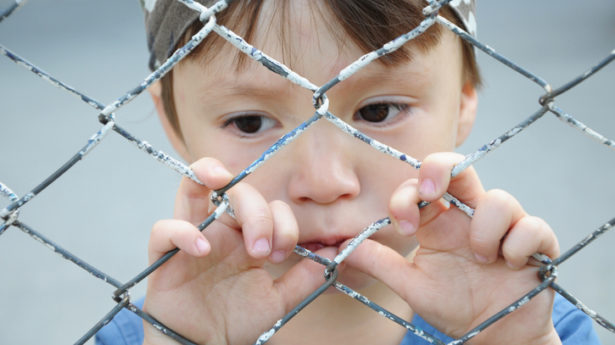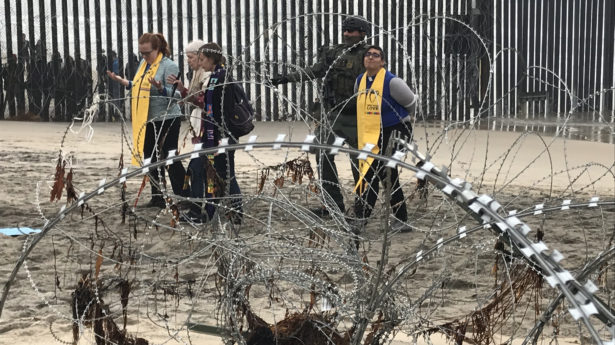The Unitarian Universalist Service Committee advances human rights through grassroots collaborations.
5 Takeways for Immigration Allies from the National TPS Alliance Summit
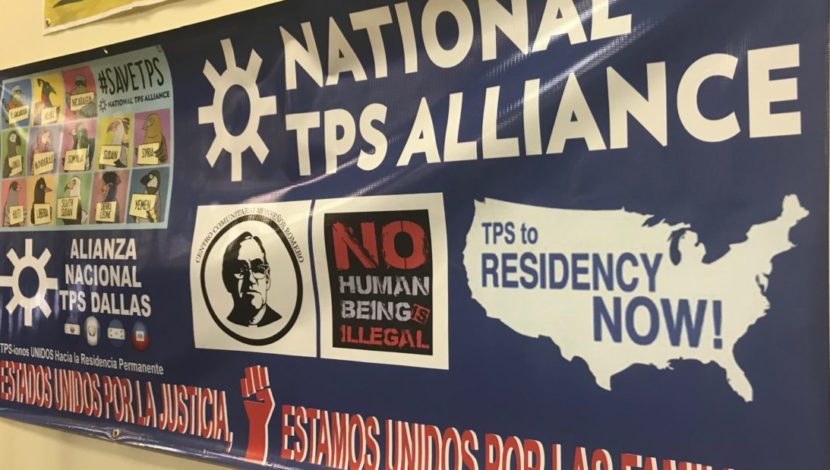
By Hannah Hafter & Josh Leach on March 8, 2019
Resistance is rarely this colorful. Thirteen banners decorated the room of the National TPS People’s Summit in mid-February in Washington D.C. Each one was adorned with the bright feathers of the national bird for each of the countries with Temporary Protected Status (TPS). After many years living in the United States with a legal immigration status, TPS holders are facing the terrible choice between deportation or becoming undocumented as the Trump administration changes the rules and revokes their right to stay. Some have lived in the U.S. for more than 20 years. There are nearly 300,000 U.S.-citizen children who have a parent with TPS and are facing separation. We hope all of you will join us in backing their call for permanent protections for them and their families.
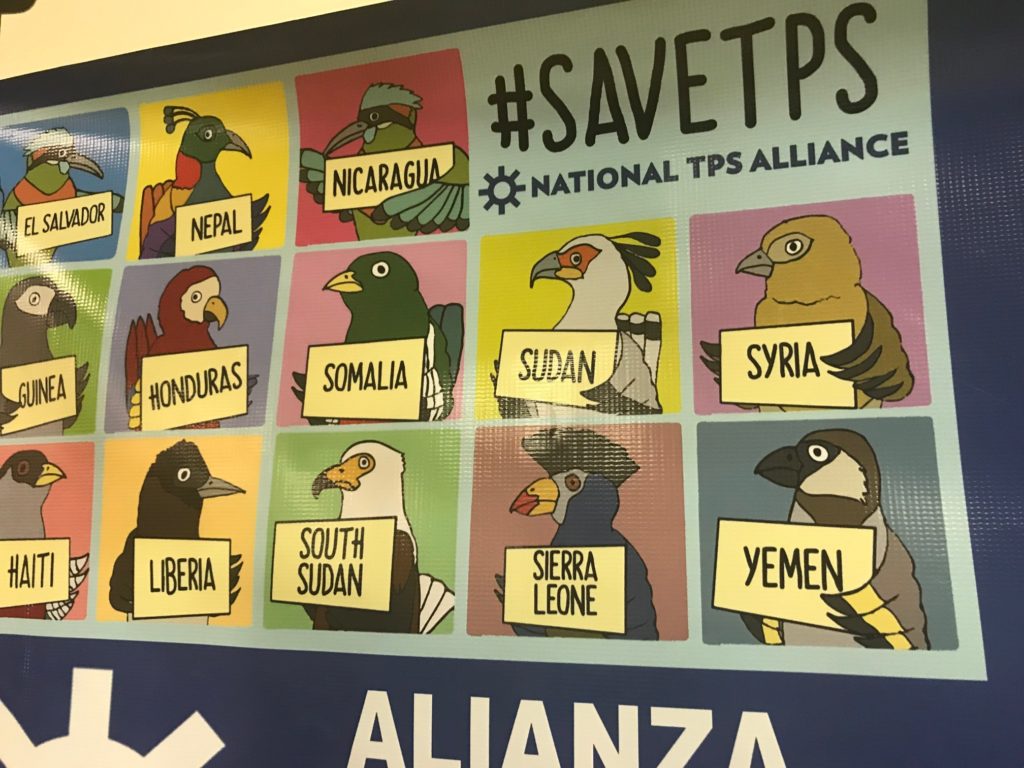
We wanted to share five key insights from the summit:
- The most powerful movements are intergenerational.
The TPS People’s Summit was attended by family members of virtually every generation, from babies to elders. In a side room, there were separate programs for teens and youth on organizing and telling their stories; we often heard bursts of laughter coming from their direction. During presentations, small kids were running around and playing on the railings of the stairs.
A group of Massachusetts youth who are U.S. citizens with TPS holder parents performed their play, “The Last Dream,” for the summit. The next day, they performed it again on Capitol Hill for members of Congress and their staff, hosted by Rep. Ayanna Pressley. The play, based on their own experiences, depicts a group of Salvadoran children with TPS holder parents who are celebrating their sister’s birthday on the night that news comes down that the president is cancelling TPS. The heartfelt words of the performers on stage made a statement and impact beyond anything we could say as adults. When I asked one of the performers later how it went on the Capitol, she said, “There was not a dry eye in the room.”
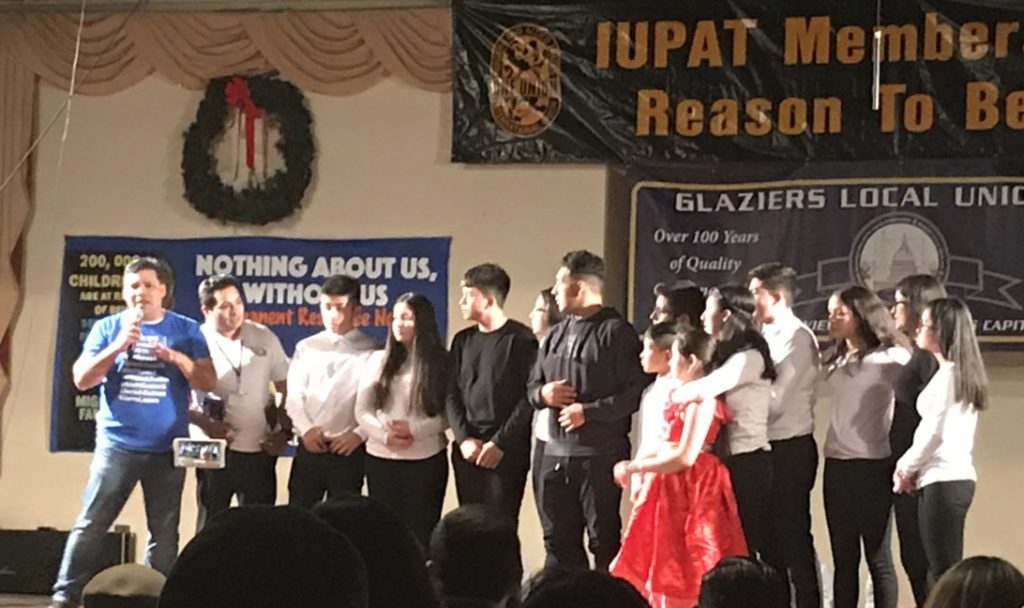
- Solidarity is for everyone.
One of the most inspiring things to us personally about the TPS Summit was the Alliance’s multinational solidarity and their commitment to ensuring that no country or TPS population would be left out of legislation for permanent residency. This has required the extraordinary feat of organizing people from 13 different national backgrounds who are scattered all over the United States and sometimes have little in common apart from their TPS status. The result was palpable. One Sudanese woman who spoke at the summit described her experience of learning of the TPS cancellations and feeling isolated and powerless, because other Sudanese TPS holders are spread thinly all over the country. She said that finding the TPS Alliance in Massachusetts, mostly with Central Americans and Haitians, helped her realize she was not alone.
Too often we hear about “solidarity” as if it were only an action by people with a form of privilege in support of those facing oppression (white folks fighting racism; straight folks fighting homophobia). It’s important to remember that groups of people affected by oppressive policies can offer solidarity too, and it’s all the more powerful because there is so much at stake.
- “Nothing about us without us.”
One of the lead TPS organizers told us, “D.C. insiders, even the immigrant-rights non-profits, keep negotiating away our rights and using TPS holders as a bargaining chip…This is about our lives, and we need to be at the table and be the ones setting the terms.”
The summit participants emphasized that they welcomed the support of allies and that it would take a broad coalition to pass legislation for permanent residency for TPS holders. However, they also made very clear that allies need to follow the lead of the TPS Alliance. Time and again, we heard stories of how “allies” seizing the leadership can undermine the whole movement and damage prospects for a permanent solution.
This co-opting can come from interested parties who suggest throwing some groups or priorities under the bus for the sake of political “compromise.” It also can come from others who act without input from the people who will have to bear the consequences. In either case, the underlying problem is the same: not following the lead of those directly impacted. The fix is easy: listen.
- We need joy to sustain our struggles and ourselves.
Singing, dancing, chanting, and laughter were present throughout the summit and the march. For a group of people facing such a threat to their families, making space for connection and joy was a crucial act of resistance. As people with many privileges, we both sometimes struggle with how to experience joy because it can feel indulgent or superficial in the face of so much suffering. The National TPS People’s Summit reminded us that joy strengthens movements, brings people into closer community, and is fundamental to our lives as human beings. We can access true joy in ways that don’t fit into capitalist models of consumption or scarcity that say our abundance depends on others having less. Our joy can come through deeper connection, community, and shared struggle.
- No one gets left behind.
At the summit, we witnessed a radical commitment to inclusivity. While the main event was primarily in Spanish, there were headsets for simultaneous translation in Nepali, Haitian Creole, and English. We learned the chant, “Down with Hate! Up with Families!” in every language spoken there. Politicians will often discuss a “compromise” TPS solution that trades certain rights in exchange for harmful changes to other immigration or asylum laws. When this happens, TPS holders are reminded that the people who have the most at stake are also the most committed to ensuring that they will not win their rights at the expense of anyone else.
TPS holders are very clear: This is not about the TPS holder as the “good immigrant” and the undocumented person as the “bad immigrant.” This is about building community power. TPS holders will continue to fight for the right to stay for all immigrants who have made the United States their home. As one organizer put it at the summit, “We don’t say, ‘I’m not a criminal,’ because that’s putting someone else down. We say: ‘We are all immigrants.’”
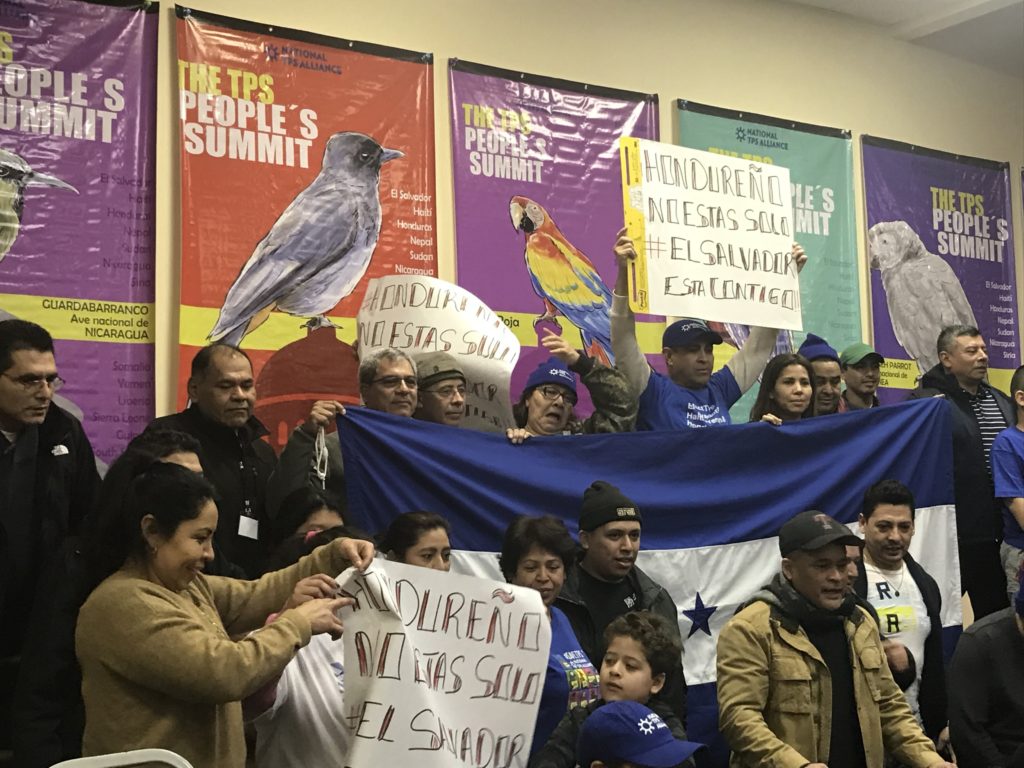
Photo Credit: UUSC
